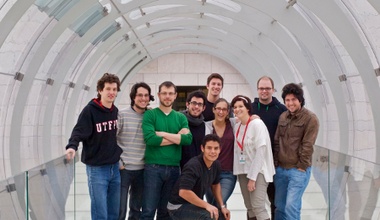INDP ALUMNI 2013
INDP 2013
Antonia Groneberg (Germany) - Orger Lab
Madalena Fonseca (Portugal) - Mainen Lab
Annelene Dahl (Norway) – Shemesh/Mainen Lab
António Dias (Portugal) - Lima Lab
Cristina Ferreira (Portugal) - Vasconcelos Lab
Gabriela Fioreze (Brazil) - Petreanu Lab
Jovin Jacobs (Jamaica) - Carey Lab
Lorenza Calcaterra (Italy) - Kampff Lab


